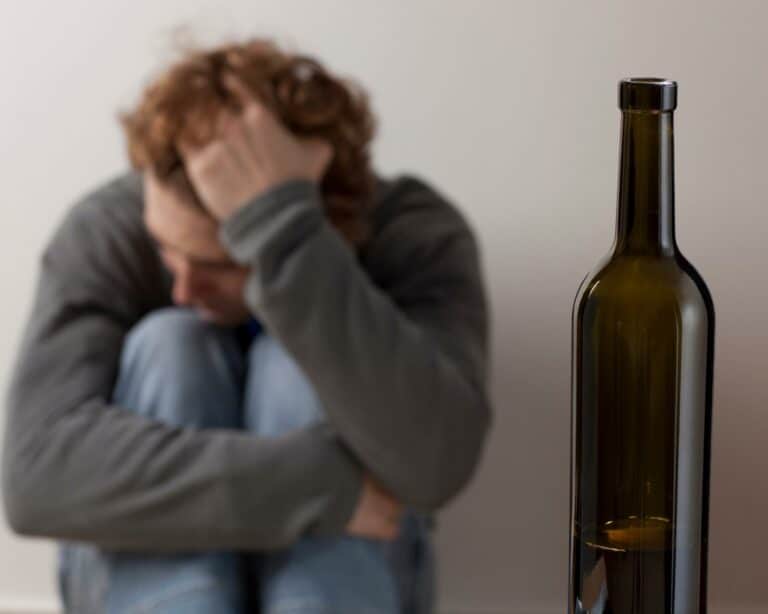Addiction affects people’s lives in profound ways. Living with untreated substance abuse and addiction often leads to lifelong consequences for people’s physical and emotional health. It impairs a person’s ability to live a healthy, fulfilling life. The effects of addiction often ripple outward into people’s families and communities. Many people require treatment to overcome addiction and live a healthy, sober lifestyle.
Many with addiction also have a diagnosed mental illness. When someone lives with both mental illness and addiction, it is called having a dual diagnosis. About 4 million people in the United States require treatment for addiction and mental health problems, but only about 8% of those who need this type of treatment get it.[1]
When someone does require treatment for both addiction and mental health problems, it’s important to treat both conditions at the same time. Not all addiction treatment facilities can treat mental illness, so it’s crucial that you find a center that offers dual diagnosis treatment.
For information on starting treatment for addiction and mental health or for support during recovery, reach out to the Woburn Addiction treatment specialists today.
Do I Need Treatment for Addiction and Mental Health?
Some people have received a formal diagnosis of a substance use disorder and a mental illness from health professionals, and some live with symptoms of both conditions without being formally diagnosed for years.
More than half of people who seek substance abuse treatment meet the criteria for a formal mental health diagnosis.[2] Having a formal diagnosis from a medical professional may help you start the process of getting treatment for addiction and mental health.
Each person’s experience with substance abuse and mental illness will be different, but people often share common symptoms when living with a dual diagnosis, including:
- Having a diagnosis of either a mental illness or a substance use disorder
- Starting to use drugs or alcohol after experiencing a traumatic event
- Diagnosis of bipolar disorder, depression, anxiety, or borderline personality disorder
- Continuing to use drugs despite negative consequences like losing a job, the breakup of a relationship, being involved in an accident, legal trouble, or a significant medical problem
- Changes in mood, personality, sleep, or appearance
- Strained relationships and isolation
- Using a lot of time and energy to get, use, and recover from substance abuse
It’s important to get treatment for addiction and mental health at the same time. If you treat only mental illness, the substance abuse may interfere with treating your symptoms. Similarly, if you treat only the addiction, your mental illness may prevent you from completing treatment.
What Happens During Treatment for Addiction and Mental Health?
Dual diagnosis rehab is similar to other substance abuse treatment programs but includes time and treatments to address the symptoms of mental illness and addiction. Treatment for addiction and mental health often happens in several stages.
Evaluation
Treatment for addiction and mental health is offered in several levels of care. People’s needs differ significantly and having the opportunity to find a program that fits is essential. The levels of care include:
- Outpatient treatment
- Inpatient care
- Residential treatment
- Intensive outpatient programs (IOPs)
- Partial hospitalization programs (PHPs)
- Medically-supervised detox
Before beginning treatment, a mental health or medical professional will evaluate your needs and recommend a level of care. Their assessment will include questions about your mental health, physical health, substance use, treatment history, and other vital information.
Many people start in one level of care and move on to others as their symptoms and skills change.
Detox
When a person’s body becomes dependent on drugs or alcohol, they may experience withdrawal symptoms when they suddenly stop using these substances. Many people begin treatment for addiction and mental health by completing a medically supervised detox program. During drug and alcohol detox, medical and support staff monitor patients and treat them for uncomfortable or dangerous withdrawal symptoms. Treatment during detox includes medications, emotional support, and holistic care to keep people comfortable.
Treatment
After completing detox, people begin programs that include counseling for addiction and mental health. A combination of evidence-based and holistic treatments provide the support, skills, and healing people need to overcome addiction and work toward a healthy, sober lifestyle. Treatment plans often include:
- Individual counseling
- Group therapy
- Family therapy
- Medications
- Mental health treatment
- Medical care
- Education
- Holistic therapies like yoga, mindfulness, art and music therapy, and nutrition counseling

Get The Care You Need and Deserve
Woburn Addiction Treatment is a leader in the addiction treatment field, with proven success in facilitating long-term recovery. Our team of top clinical & medical experts specializes in treating addiction coupled with mental illness, ensuring that each person receives individualized care. Call us – we’re available 24/day, 7 days/week.
The length of time and level of care a person requires depends on the length and severity of their addiction and mental illness and other factors. Someone who begins in an inpatient program may move to a lower level of care, such as outpatient treatment or a partial care program.
Aftercare
People who live with mental illness and substance abuse or addiction must remain active in their recovery and manage the symptoms of both conditions for the rest of their lives. Treatment for addiction and mental illness often includes developing an aftercare plan that allows people to stay committed to sobriety for life.
Get Help Now
Seeking treatment for addiction and mental health at the same time can reduce your risk for relapse. If you or someone you love requires dual diagnosis treatment or support during recovery, reach out to the Woburn Addiction Treatment addiction specialists today.
References:


